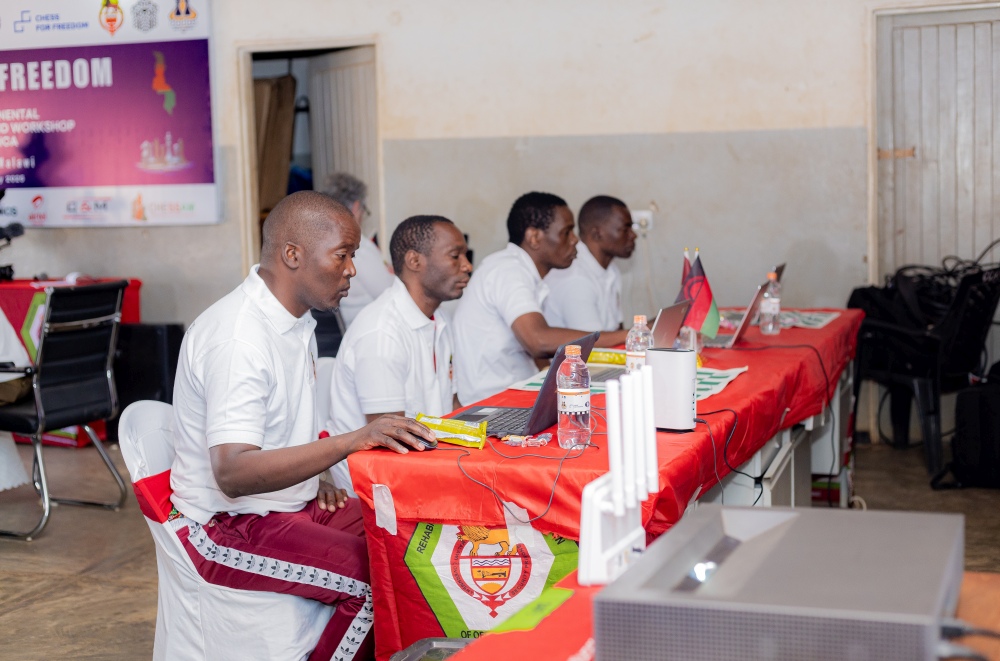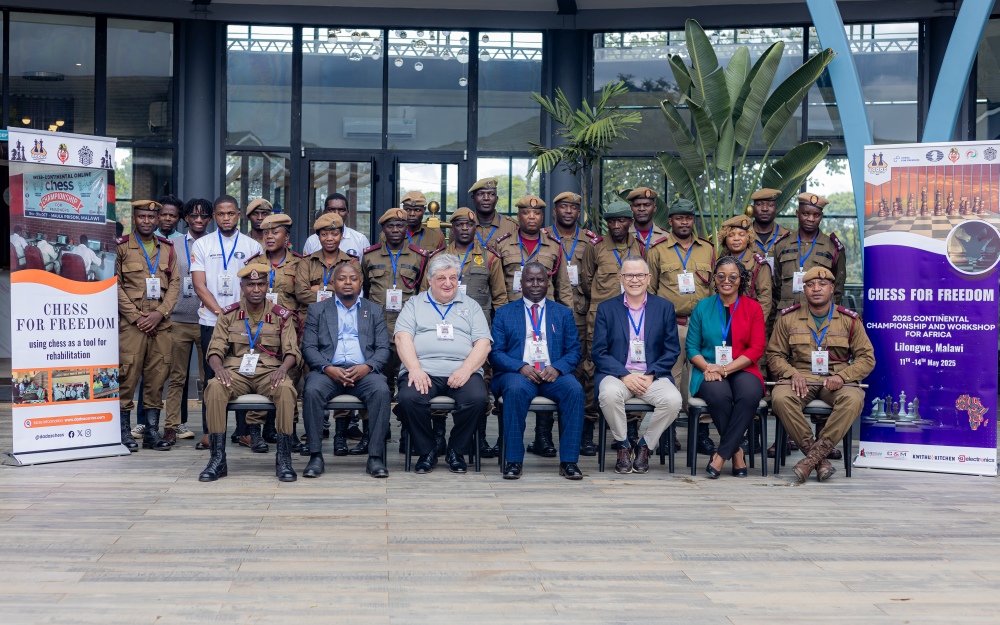
The FIDE “Chess for Freedom” program is the largest global initiative of the FIDE Social Commission. In the Year of Social Chess, each month highlights a specific social group, and May focuses on the “Chess for Freedom” initiative with two major continental conferences and tournaments—first in Malawi (Africa), followed immediately by another one in Mexico (Americas).
The primary goal of these conferences is to expand the reach of the Chess for Freedom program from its current presence in 50 countries to over 60. This was the motivation behind organizing the African Conference in Lilongwe, Malawi, under the leadership of Susan Namangale, Dadaz Academy Chess Founder and Member of FIDE PDC Commission.
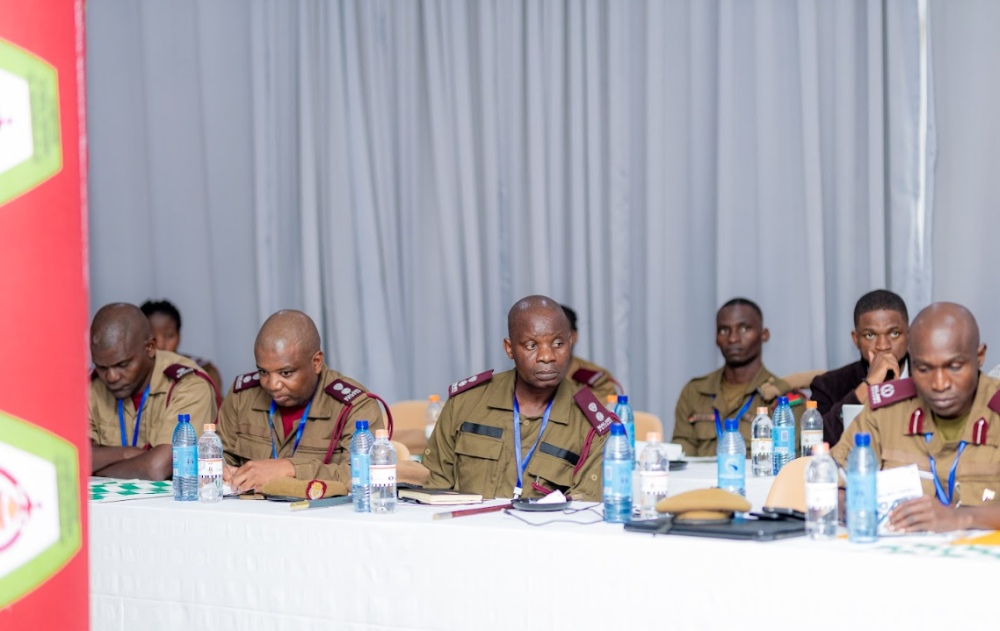
The first day featured a workshop involving representatives from the FIDE Social Commission, officials from Malawi’s Prison Service, prison directors from across the country, and delegates from Ghana, Kenya, and the Malawi Chess Federation. Also in attendance were members of Dadaz, a local chess academy led by Susan Namangale, who also serves as a representative of Malawi’s Sports Council.
The day included presentations, interactive discussions, fostering a collaborative and visionary atmosphere. The hybrid format allowed for international participation via Zoom.

André Vögtlin, Chair of the FIDE Social Commission, praised the initiative as a well-established global project and expressed satisfaction with its successful introduction to Central and Southern Africa. He expressed hope that many new countries would now join the movement and participate in the 2025 Chess for Freedom World Championship in October.
Vögtlin personally thanked Susan Namangale for her outstanding efforts and presented her with a certificate of recognition from the FIDE Social Commission.
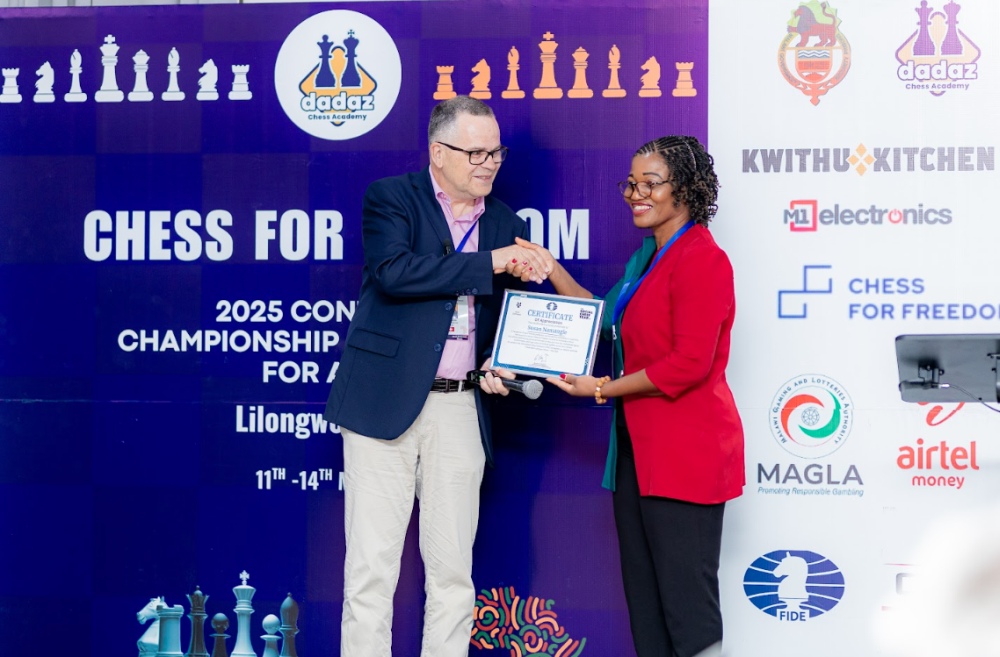
Susan Namangale emphasized that chess has a transformative effect on incarcerated individuals and sees her collaboration with Malawi’s prison system as a foundational element for expanding the Chess for Freedom program in the region. She expressed great satisfaction in witnessing the growth of social chess in Malawi.
Project founder Mikhail Korenman expressed his delight with both the workshop and the subsequent championship, praising the exceptional organization. He highlighted the logistical achievement of safely transporting inmates from different prisons to the central venue—an approach that is rare globally.
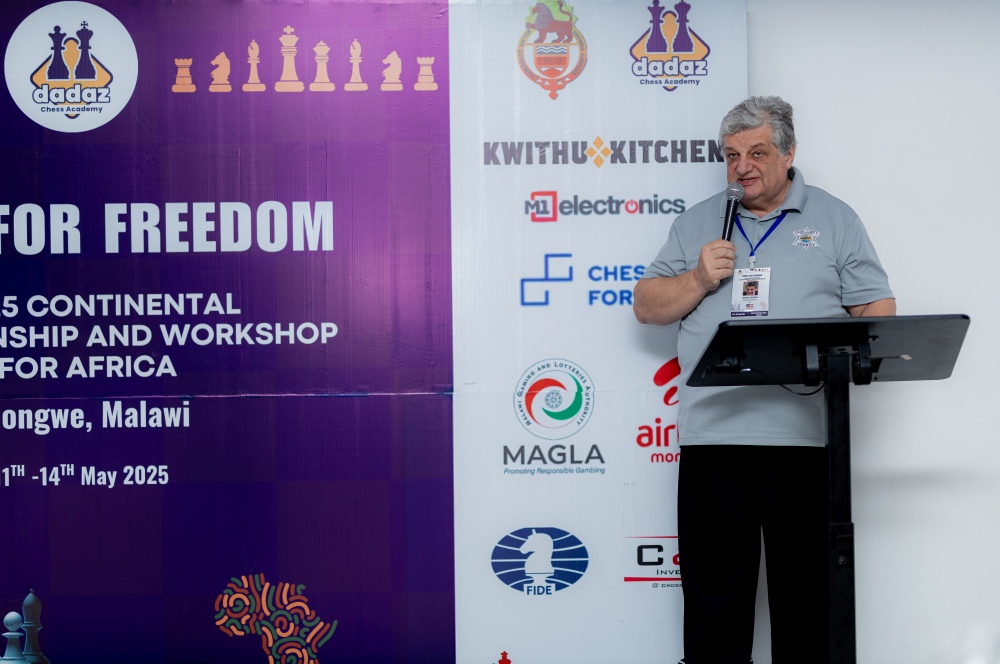
Both Korenman and Vögtlin noted that Malawi could serve as a role model for other African countries in the development of the Chess for Freedom initiative.
The conference also showcased the success of partnerships, notably with Gift of Chess, in supplying chess sets.
Maxwell Kamova, Assistant Commissioner of the Malawi Prison Service, stated that the chess program has had a profoundly positive impact on inmates, contributing to behavioral improvements. He mentioned that Malawi has specific guidelines for pardons and sentence reductions, and chess could potentially be used as a criterion for early release, given its role in promoting good behavior.
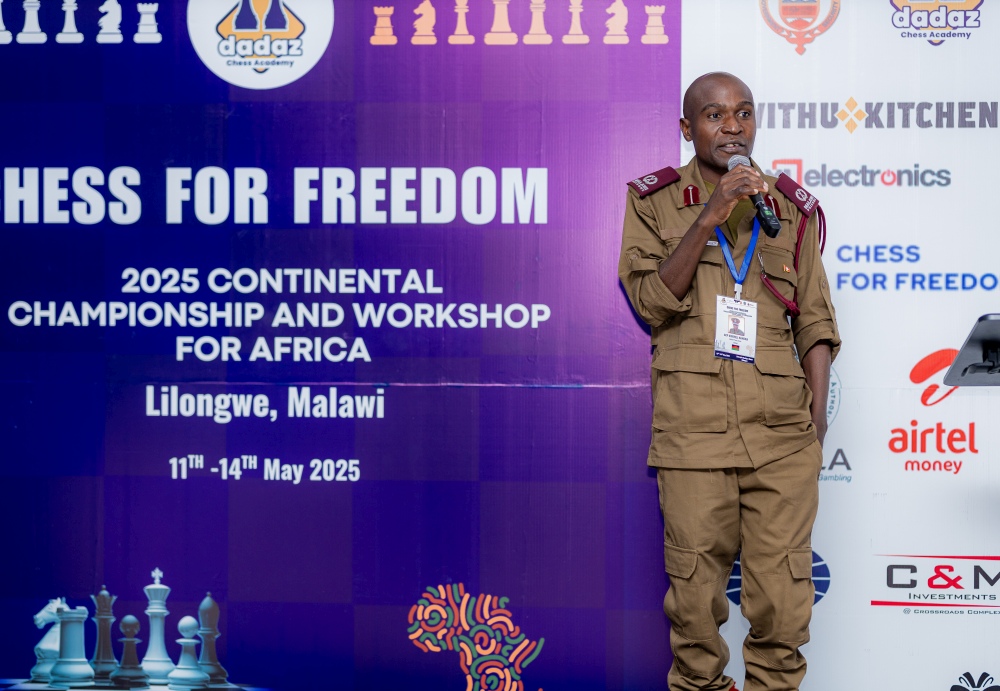
The second day saw the African Continental Chess for Freedom Championship held at Maula Prison. Four teams from Malawi participated: two men’s teams, one women’s team, and a youth team. Additional teams from Zimbabwe, Ghana, and Kenya joined the tournament.
Team Zimbabwe emerged victorious in the open section, followed closely by Malawi I and Malawi II. Malawi’s youth team was at a slight disadvantage due to a last-minute illness, yet home youngsters had a good showing, placing second, third, and ninth.
André Vögtlin noted that the online Chess for Freedom format has proven effective for inter-prison competition, and that this championship served as an excellent trial run ahead of the global championship in October. Special thanks go to the technical team led by Nebojsa Baralic, who coordinated the online components of the tournament via Zoom and ensured smooth operations on chess.com.
In closing, Mikhail Korenman stated: “Malawi is not only a strong partner for this project but for chess development in general.”


